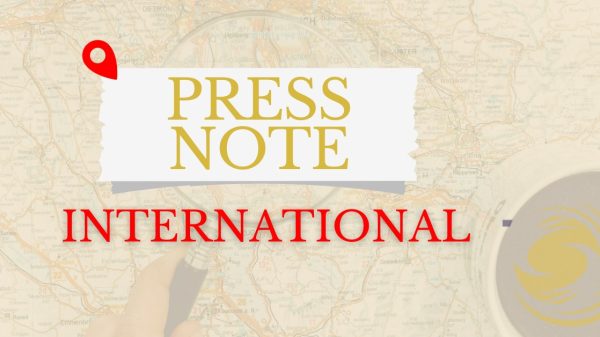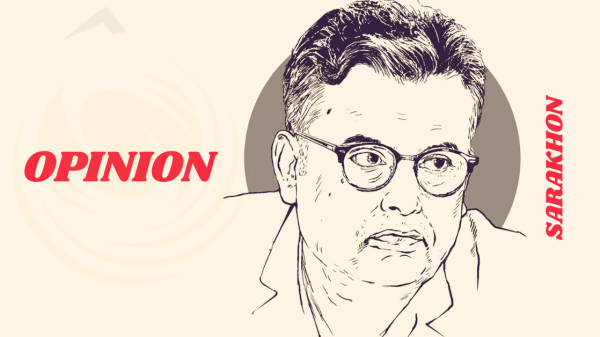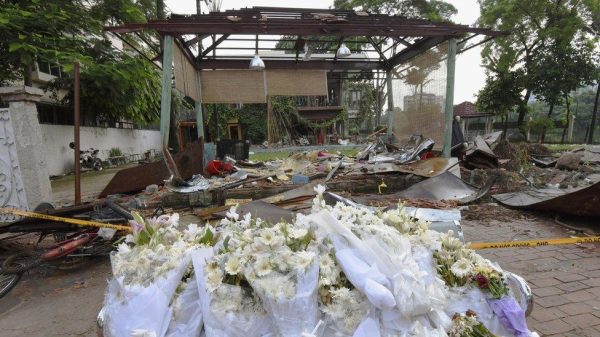Pope Francis Undergoes Medical Treatment Following Health Scare

- Update Time : Sunday, February 23, 2025

Hamas to Release Israeli Hostages Amid Ongoing Ceasefire Negotiations
The Guardian,
In a significant development, Hamas has announced plans to release six Israeli hostages on February 22, 2025, as part of a broader ceasefire agreement. This move follows the return of the bodies of four Israeli hostages, including members of the Bibas family, on February 20. The exchange is set to involve the release of hundreds of Palestinian prisoners held by Israel. Israeli authorities have confirmed the upcoming negotiations for the second phase of the Gaza ceasefire deal, aiming to establish a lasting peace in the region. The situation remains delicate, with both sides expressing cautious optimism. International observers view these developments as potential steps toward resolving longstanding hostilities, though challenges persist in ensuring the ceasefire’s durability and addressing underlying political tensions.
German Federal Election: Voters Head to Polls Amid Economic and Security Concerns
The Times,
On February 23, 2025, German citizens are casting their votes in a pivotal parliamentary election that could reshape the nation’s political landscape. The election is largely seen as a referendum on Chancellor Olaf Scholz’s tenure, marked by economic challenges and rising security issues. Polls suggest a significant shift, with the Christian Democratic Union (CDU), led by Friedrich Merz, poised to unseat the incumbent Social Democratic Party (SPD). The right-wing Alternative for Germany (AfD) is projected to secure second place, doubling its previous vote share. However, due to its controversial policies, other parties have expressed reluctance to form coalitions with the AfD. Key voter concerns include immigration, crime rates, economic stagnation, and energy policies. The election’s outcome may lead to complex coalition negotiations, as the CDU seeks to form a government capable of addressing these pressing issues. The political climate remains tense, reflecting widespread public dissatisfaction with the current administration’s handling of national affairs.
US Vice President JD Vance Engages in ‘Fruitful’ Talks with Ukrainian President Zelensky
The Times,
At the Munich Security Conference on February 19, 2025, US Vice President JD Vance held a “fruitful” meeting with Ukrainian President Volodymyr Zelensky. The discussions centered on advancing peace negotiations to resolve the ongoing conflict between Ukraine and Russia. Vice President Vance emphasized the United States’ commitment to achieving a “durable, lasting peace” in the region. However, his remarks criticizing European free speech policies sparked controversy among European leaders, who defended their nations’ democratic values. The conference underscored the complexities of international diplomacy, highlighting differing perspectives on security and governance between the US and its European allies.
Australian Government Announces $8.5 Billion Medicare Funding Boost
The Guardian,
Prime Minister Anthony Albanese has unveiled an $8.5 billion investment to enhance Australia’s Medicare system. The funding aims to expand bulk billing services, increasing coverage from 11 million to 26 million individuals by 2030. The initiative seeks to ensure that nine out of ten general practitioner visits are fully bulk-billed, reducing out-of-pocket expenses for patients. The opposition has expressed support for the proposal, suggesting an additional $9 billion investment in general practice services. The government plans to legislate these changes promptly, reflecting a bipartisan commitment to strengthening Australia’s healthcare system. This significant financial commitment underscores the priority placed on accessible and affordable healthcare for all Australians.
US President Trump Proposes Tariffs and Mass Deportations in First 100 Days
The Guardian,
In the initial phase of his second term, President Donald Trump has introduced a series of assertive policies, including the imposition of tariffs on steel and aluminum imports and plans for mass deportations of undocumented immigrants. These measures align with his administration’s broader agenda of economic protectionism and stringent immigration enforcement. Additionally, President Trump has appointed key figures such as Robert F. Kennedy Jr. as Health Secretary and Elon Musk to lead the newly established Department of Government Efficiency. These actions have elicited mixed reactions domestically and internationally, reflecting deep divisions over the administration’s policy directions. The unfolding political landscape suggests a period of significant change and potential upheaval in both domestic and foreign affairs.
France Grapples with Market Attack Amid Heightened Security Concerns
LiveMint,
A tragic incident in eastern France has left one person dead and three police officers injured after an extremist, reportedly shouting “Allahu akbar,” launched a stabbing attack at a local market. The assailant, identified as an Algerian national with a history of glorifying terrorism, was apprehended at the scene. This event has intensified ongoing debates about national security and immigration policies in France. Authorities are conducting a thorough investigation to determine the assailant’s motives and potential connections to broader extremist networks. The attack underscores the persistent challenges France faces in addressing radicalization and ensuring public safety.
Elon Musk’s ‘Work Log’ Directive Sparks Controversy Among Federal Employees
Hindustan Times,
Elon Musk, appointed as head of the Department of Government Efficiency, has mandated that all US federal employees submit weekly work logs detailing their accomplishments. Non-compliance with this directive is to be interpreted as voluntary resignation. This policy has been met with resistance from federal employee unions, who describe the move as “cruel” and “disrespectful.” Critics argue that the measure undermines employee morale and fails to account for the complexities of public service work. Proponents assert that it promotes accountability and efficiency within government operations. The directive has ignited a broader discourse on workplace management practices and employee rights within the federal sector.
Pope Francis Undergoes Medical Treatment Following Health Scare
Hindustan Times,
The Vatican has reported that Pope Francis received a blood transfusion and was administered high-flow oxygen therapy after experiencing an asthmatic crisis and low platelet counts. Following the treatment, the pontiff spent a peaceful night, and his condition is currently stable. The 88-year-old Pope’s health has been a subject of concern in recent years, prompting prayers and well.










Leave a Reply